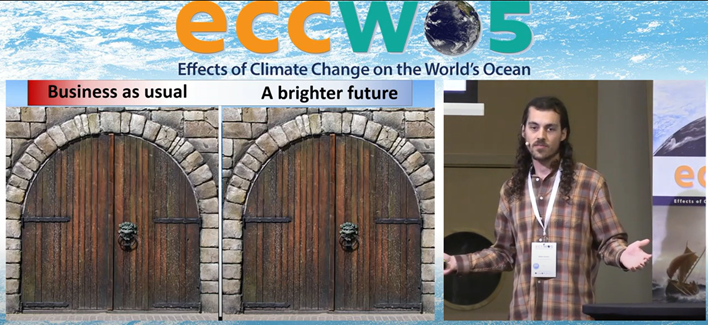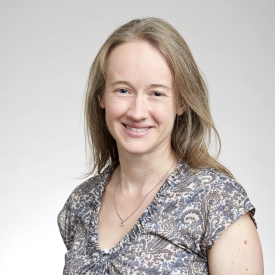A new biological science practices paper in Proceedings B addresses how a more forward-thinking view on open science may help better prepare for the future of our species. Author Dylan Gomes from the U.S. Geological Survey, Forest and Rangeland Ecosystem Science Center in Seattle tells us more about the paper.
.jpg)
By embracing open science practices, scientists give the future of humanity the information to make better decisions, save time and other valuable resources, and increase global equity as access to information is made free.
I was slated to present my research at the 5th International Symposium on Effects of Climate Change on the World's Oceans (ECCWO5) in Bergen, Norway. My presentation had been prepared for weeks. I had compiled many datasets and literature to build an end-to-end ecosystem model and was excited to share the results with my colleagues. However, as the conference went on, I was hit by a wave of inspiration. I felt called into action as I learned what others had discovered about how the Earth’s Ocean was changing. Instead of presenting a description of measurements and modeling efforts, I decided to be bold and encourage scientists to change their own actions to improve our shared future (talk can be found here). This felt risky, but necessary. I presented a rationale for an embrace of open science – leaving important information in the hands of future scientists to make better decisions and to be more informed.

The risk paid off. I was one of three presenters at the ECCWO5 Symposium who was granted an outstanding presentation award. My presentation titled, "What will we leave our future? Data accessibility challenges and solutions," offered a perspective on where we are headed, collectively, as a scientific enterprise and how we might better prepare ourselves for our uncertain future through the organization and archiving of data and code. In the article titled “How will we prepare for an uncertain future? The value of open data and code for unborn generations facing climate change” in Proceedings of the Royal Society B, I outline the benefits of open science for current and future research, the conservation of our planet’s resources, and human use of those resources. I demonstrate how open science practices improve our ability to deal with the future and the transformations that affect the natural world.
The article underscores the importance of open science practices, particularly in sharing data and code, for advancing scientific progress and addressing global challenges. Accessible data fosters global collaboration and empowers others to contribute to scientific discovery. Inclusivity brings a diversity of perspectives to create solutions to our global issues. Open science broadens participation in research, reduces waste, and facilitates easy access to knowledge.
However, challenges persist, including inadequate metadata, lack of standardization, and the high cost of maintaining data archives. Despite increased emphasis on data sharing by funding agencies and journals, the quality and reusability of shared data often remain insufficient and could benefit from global adoption of common quality criteria. Institutions and funding agencies are beginning to offer financial and logistical support to ensure data are well-documented, organized, and preserved for future generations.
In the article, I describe a cultural shift where datasets are valued as foundational units of knowledge, akin to scientific publications. Emerging publishing paradigms, such as linking multiple analyses to a single dataset, highlight the untapped potential of open data. Furthermore, the rapid growth of artificial intelligence suggests that future methodologies could unlock new insights from today’s data, making its preservation critical. We gain collective benefit by safeguarding data and code for future generations, supporting a more sustainable and inclusive future. Ultimately, open science can help us collectively tackle global challenges and foster a unified understanding of Earth’s complex systems.
Proceedings B is looking to publish more high-quality Biological Science Practices papers. Find more information about the journal and how to submit.




